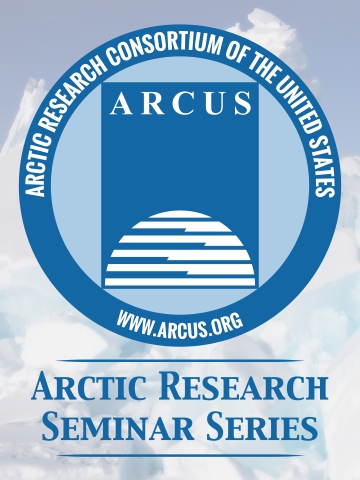ARCUS invites registration for the next Arctic Research Seminar featuring Sarah Laske, USGS Alaska Science Center, titled "Circumpolar Patterns of Arctic Freshwater Fish Diversity: A baseline for monitoring". The seminar will be held via Zoom.
Registration is required for this event. Instructions for accessing the webinar will be sent to registrants prior to the event.
Seminar Abstract
Climate change, biological invasions, and anthropogenic disturbance pose significant threats to Arctic freshwater biodiversity. Information gaps and insufficient knowledge about current biodiversity limit our ability to determine patterns or trends over space and time. Recently, a group of international scientists collaborated to compile and analyze data from streams and lakes in the circumpolar Arctic – producing the first assessment of the state of Arctic freshwater biodiversity. Fish species presence/absence data were used to evaluate patterns of diversity at local, regional, and circumpolar scales. Within North America, fish diversity patterns were evaluated for congruence with environmental factors. Circumpolar patterns of fish species diversity varied with latitude, hydrologic isolation, and ecoregion characteristics. Only one species, Arctic charr Salvelinus alpinus, occurred above 71 degrees N latitude, but local scale Arctic diversity peaked at 70 degrees N, which was evident across the circumpolar north and in North America. High latitude diversity appears to be supported by the presence of anadromy in coastal systems and areas unaffected by the last glaciation (180k BP). Reduced richness above 71 degrees N resulted primarily from physical isolation of freshwater habitats and allowing colonization only by migratory anadromous species. At lower latitudes, coarse ecoregion characteristics, like elevation, contributed to overall diversity patterns, with fewer species in mountainous regions compared to adjacent lowland areas. These large-scale assessments are the first steps in determining circumpolar freshwater diversity patterns; however, this study also highlights the significant gaps in data coverage and our current limited ability to detect change. Inclusion of archived and new data – on fishes and their environment – will allow for studies to test change in observed patterns of biodiversity.
Speaker Bio
Sarah Laske is a fish biologist at the U.S. Geological Survey, Alaska Science Center in Anchorage. She was hired in 2017 after completing her Ph.D. at the University of Alaska Fairbanks, where she studied drivers of fish community structure and trophic relationships in Arctic Coastal Plain lakes. Her work focuses largely on fish community ecology and food webs of Arctic species and landscapes. Currently, she is taking on investigations exploring mercury biomagnification in lake food webs. Outside of work, Sarah is at the whim of her spoiled bird dogs, but she does enjoy baking loaves of sourdough and other treats.

